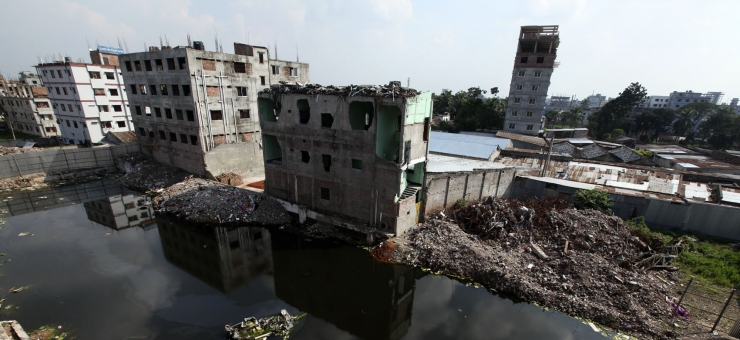News
3 years on from Rana Plaza, the Bangladesh Accord is saving lives

As one of the worst industrial disasters in recent history, the Rana Plaza factory collapse is a reminder that disregarding human and labour rights can cost lives. Three years on, Bangladesh’s garment industry is starting to feel the benefits of the Accord on Fire and Safety in Bangladesh.
Rana Plaza served as a wake-up call to multiple stakeholders – global and local unions, NGOs and brands have worked together to create the Accord on Fire and Building Safety in Bangladesh. UNI Global Union and IndustriALL are the two global union signatories to the Accord.
The legally binding agreement, with over 200 brands, has brought quantifiable improvements in building and fire safety. The Accord has completed almost 3,700 factory inspections and re-inspections and has both identified and remedied thousands of safety issues.
Real improvements on the ground are being made – more than 50,000 problems and 75 per cent of electrical issues have been reported as fixed.
The impact of fires at buildings such as at the Pretty Sweaters Ltd factory and Matrix building has been significantly lessened due to safety measures such as automatic sprinkler systems, fire doors, fire alarms and structural improvements.
In the Pretty Sweaters Ltd fire, the fact that no workers lost their lives highlights the importance of the Accord’s work in Bangladesh. Sprinkler and automated fire alarm systems ensured that the fire was contained to the 7th floor of the factory and brought under control within an hour. Although some of these systems were already in place before the Accord, this shows that the safety measures that are being implemented can create a safer environment for garment workers.
UNI Global Union Head of Commerce, Alke Boessiger said: “While there are still many unacceptable delays in improving safety and working conditions in the industry, there can be no doubt that the work of the Bangladesh Accord has saved lives.
“Much progress has been made, but there are many challenges ahead as the vast majority of factories are behind schedule with their repair plans. Factories and their buyers failing to meet the requirements are being held accountable and placed in the Accord escalation procedure.”
"The groundbreaking Bangladesh Accord came out of a deadly tragedy but has saved lives since its creation," says Christina Hajagos-Clausen, IndustriALL Global Union director textile and garment industry.
"Making the the garment industry safe is a big and necessary task. The Accord focuses on ensuring the safe remediation of factory issues – people should not have to risk their lives by going to work."
The Rana Plaza anniversary is an opportunity to remind the world that although the Bangladesh Accord has been difficult to implement and subject to delays, tangible progress has been made in ensuring the safety of garment workers in Bangladesh.

